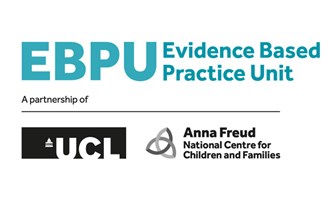 Healthy self-esteem in children and young people is the topic of our first blog post to support teachers and parents looking to understand how they can help children with their well-being.
Healthy self-esteem in children and young people is the topic of our first blog post to support teachers and parents looking to understand how they can help children with their well-being.
What is self-esteem?
Self-esteem is our opinion of our self and our worth. It’s our perception of our value as a person, particularly in regard to our work and achievements, our purpose in life, how we relate to others and our ability to stand on our own feet. Having healthy self-esteem means being comfortable with how we look and how we feel. It means feeling good about ourselves, our abilities and our thoughts.
Self-esteem is made up of all the experiences and relationships we’ve had in our lives. The people we encounter in our lives add to or, in some instances unforunately, take away from how we see ourselves and our level of self-esteem.
For children and young people, building self-esteem is an ongoing process and starts early. As parents and teachers, we don’t always get it right but as long as we remember to praise, listen and enforce boundaries in a positive way more often than not, we can help children and young people to develop healthy levels of self-esteem. P
What does healthy self-esteem look like?
Someone with positive self-esteem will generally approach things thinking they are a good person who deserves support and love and can succeed in life. Someone will low or negative self-esteem will generally think that they are not good at things, don’t deserve love or support and that situations will work out badly for them.
Children and young people with high self-esteem:
- Have a positive view of themselves
- Make friends easily and adapt to new situations
- Can play on their own or in groups
- Will try to work things out for themselves but are willing to ask if unsure
- Can be proud of their achievements
- Can admit their mistakes and learn from them
- Are willing to try new things and adapt to change
A person with healthy self-esteem believes that they are doing the best they can. They accept that life isn’t perfect and rolls with the punches. They are comfortable with who they are and can get through things that don’t turn out the way they expected. Building resilience — the ability to adapt well to adversity, trauma, tragedy, threats or even significant sources of stress — can help our children manage stress and feelings of anxiety and uncertainty. We’ll be writing more on this in the future.
Why is healthy self-esteem particularly important for children and young people?
Young people with low self-esteem can find it very hard to cope with pressures from school, peers and society. The teenage, and increasingly pre-teen yearss can be very stressful as youngsters are expected to achieve good grades, look a certain way and be successful or popular. Children and young people with low self-esteem are more at risk of developing depression, anxiety, self-harming and other mental health problems as they grow up, and will often find the ups and downs of life in general harder to get through.
Most children and young people will have dips in self-esteem as they go through different stages and challenges. Starting or changing school, moving house, changes in the family can all affect a child’s self-esteem but with support they can get through this.
In conclusion, having healthy self-esteem helps children in many areas of their life. They have the courage to try new things, like making new friends. they believe in themselves and know that good things can happen when they try their best. Our next blog post will look at how we can help children and young people to develop healthy self-esteem.







It was very helpful I need to talk about this with teacher and mom